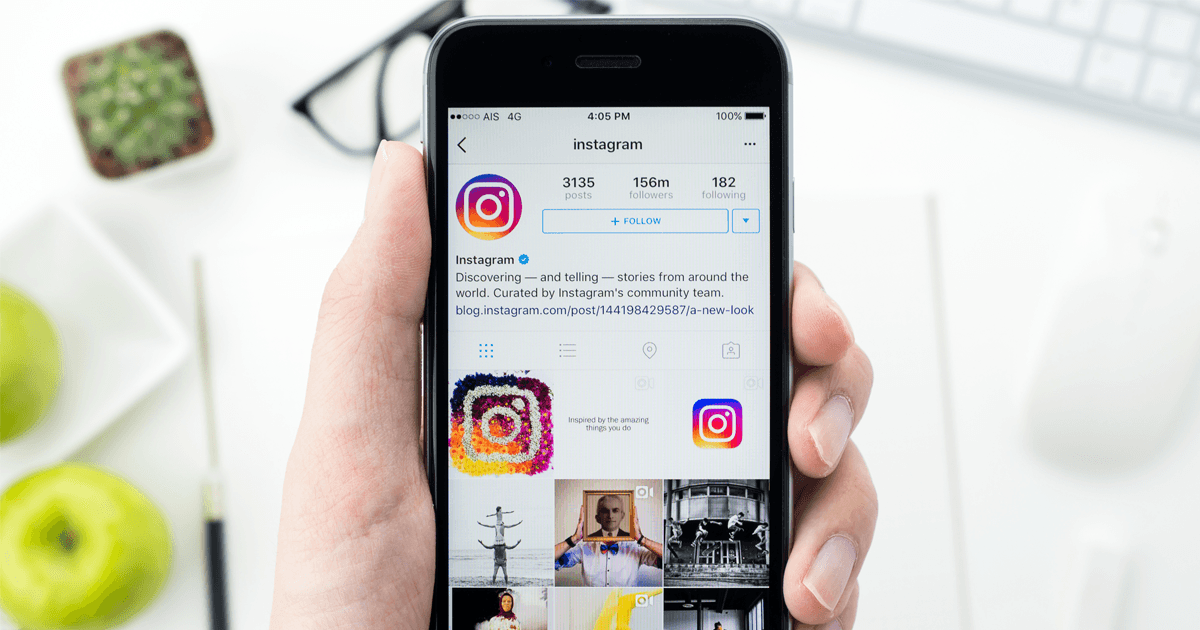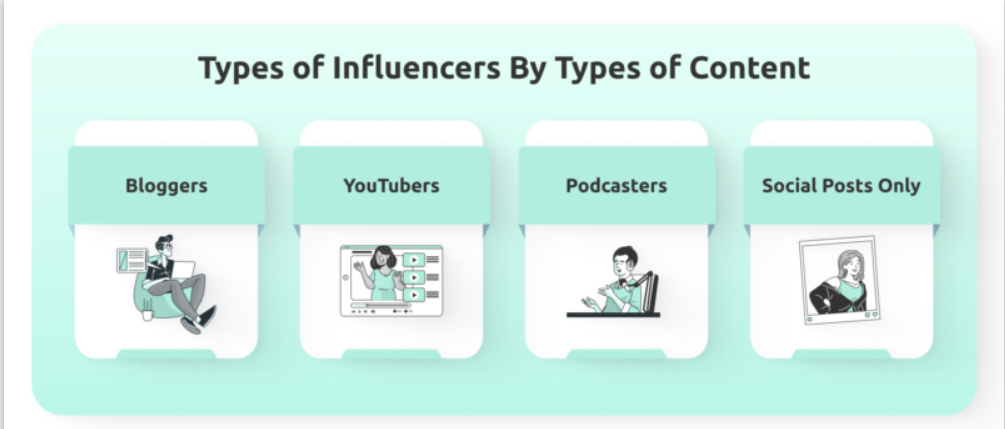Are you looking to reach out to a new and vast audience in an exciting way?
Then look no further than Instagram influencer marketing!
Utilizing the power of social media, this form of advertising gives your business access to millions of people instantly.
It’s an effective way for brands, big and small, to spread their message, build customer loyalty, and gain the trust of influential users.
Plus, it can be done on a budget and is becoming one of the most popular digital marketing strategies across all industries.
Keep reading as we break down how to use Instagram influencer marketing for your business.
What Is An Influencer?
Influencers are individuals who have the power to affect the purchasing decisions of others because of their authority, knowledge, position, or relationship with their audience.
They have a large following of people who look to them for advice and guidance on what products or services to purchase.
This can include traditional celebrities, bloggers and social media personalities, athletes, political figures, and more.
At its core, influencer marketing is about partnering with influential people who have an engaged audience in order to create a mutually beneficial relationship.
By collaborating with influencers, companies can significantly increase brand awareness and visibility as well as generate leads and boost sales.
Technological advances have allowed influencers to reach larger audiences than ever before through social media platforms like Instagram, YouTube, Twitter, and Snapchat.
With over 2 billion active users on Instagram alone in 2021 – there’s no denying that influencer marketing has become a powerful force in digital marketing today.
One of the main benefits of working with influencers is that it allows brands to reach their target market by leveraging an individual’s influence over public opinion.
Influencers possess a unique ability to create a genuine connection with followers because they tend to be open and honest about personal opinions, which resonates deeply with their fans.
This makes promoting products easier since fans are more likely to listen when they trust the source.
Given its success rate, many brands now invest heavily in time and money to build relationships with influencers who can help them promote their services or products effectively.
Any company that wants to use this type of marketing strategy must ensure that it partners with authentic influencers who are true ambassadors for its brand or product.
When done correctly, influencer marketing can be extremely effective at amplifying your message across all channels while creating meaningful connections between brands and customers alike.
What is Influencer Marketing?

Influencer marketing is an effective form of digital marketing that promotes a brand, product, or service by working with influential people (also known as influencers).
These influencers have a dedicated and engaged following, which they can use to help spread the word about a company’s products and services.
In recent years, it has become an increasingly popular tool for companies, as it allows them to tap into large and established audiences.
People who are already familiar with the influencer’s work are more likely to respond positively to their recommendations than to traditional advertising.
The power of influencer marketing lies in its ability to leverage relationships between the influencer and their followers.
This creates a unique bond between the two parties that often results in more organic and authentic interactions than those achieved through more traditional forms of advertising.
As such, influencers now play a major role in both B2C (business-to-consumer) and B2B (business-to-business) marketing strategies across many industries.
Businesses looking to utilize influencer marketing first need to identify key influencers in their particular industry who already have an established audience.
This can be done by looking at metrics such as engagement rate, follower count, reach, average likes per post and other relevant data that will help businesses narrow down potential options.
Once they have identified key candidates, businesses should then reach out directly or through an agency or platform and discuss available opportunities for collaboration.
Depending on the size of their campaign budget, businesses may opt for smaller micro-influencers, who often have higher engagement rates but lower follower counts than macro-influencers.
It is important when choosing an influencer that they align with your brand’s values.
This will ensure better campaign results since most consumers can spot an unauthentic sponsorship right away.
In addition, you should also look into the influencer you chose’s previously successful collaborations so that you can get an idea of what kind of content resonates best with his/her audience before embarking on your campaign together.
Once you have chosen your ideal candidate(s), it’s time to agree upon objectives and goals for the collaboration alongside discussing payment terms if applicable (many times, non-monetary compensation like free services or products may be provided).
It is essential during this stage that all expectations are clearly outlined from both sides, including usage rights & expected results metrics, delivery dates & any other relevant information related to the collaboration itself.
After all of this has been agreed upon, both parties can then proceed with creating content for their respective platforms according to what was previously discussed so they can commence their campaign!
To sum up, influencer marketing is becoming an increasingly popular promotional tool due to its ability to leverage relationships between individuals and connect brands directly with large audiences.
Who is already familiar with the work produced by these individuals – resulting in organic interactions without having them seem overly ‘spammy’ like some traditional ads do?
The key steps involved include identifying potential candidates according to metrics & ensuring alignment between what they represent & your own values prior deciding whether they would be suitable candidates.
Followed by outlining expectations & goals before proceeding with launching campaigns together!
Influencer Marketing on Instagram:

Influencer marketing on Instagram is an effective way to reach a wider audience and promote your brand.
This type of marketing involves working with bloggers, models, and other influencers with large followings to create content that will be shared on their platforms and, in turn, can increase sales.
People who use Instagram often rely heavily on their followers for advice when purchasing products or services.
Therefore, when an influencer recommends something, their followers are likely to consider that recommendation when looking for the same product or service.
This type of marketing is becoming increasingly popular among businesses as it helps them gain exposure and credibility.
One of the main benefits of influencer marketing on Instagram is that it allows businesses to connect directly with customers in a personalized way.
By working with influential people who have already built up relationships with their fans, businesses can tap into those fan bases and reach more potential customers than ever before.
Additionally, this type of marketing allows brands to target specific audiences depending on the influencers they choose to work with – such as age groups or interests – allowing them to get even more value out of their campaigns.
Another reason businesses should engage in influencer marketing on Instagram is that it can increase sales by attracting new customers through word-of-mouth recommendations from trusted sources.
This kind of organic promotion often carries much greater weight than paid advertisements do.
Furthermore, by creating content that resonates with the target audience, a business can also benefit from increased brand awareness and engagement, which will help it convert leads into customers later on.
Influencer marketing helps boost conversions and can also be part of a business’s overall content strategy.
Instead of relying solely on paid ads, businesses can use influencers’ platforms to create interesting visuals and captions that will help build relationships between brands and potential consumers.
In addition to helping businesses stand out from competitors, this kind of creative content will encourage people to engage more directly with the brand, which could potentially lead to down-line sales.
Moreover, leveraging influencers’ insights about trends and preferences in certain industries or demographics can provide invaluable information for brands looking to expand their customer base.
Launch new products; these insights would not necessarily be accessible otherwise without engaging in targeted market research, which often turns out to be costly for small companies or startups.
All in all, there are numerous benefits associated with utilizing influencer marketing on Instagram for both established brands and growing start-ups alike.
However, it is important for marketers to remember that success does not come overnight and requires careful planning to deliver the desired results over time.
Quick Links:
- Best Ways To Automate Your Marketing Operations
- Must Read Before Starting an Instagram Account
- How to Use Hashtag for Your Instagram Business or Brand?
Conclusion: Instagram Influencer Marketing 2024
After considering the benefits and considerations of Instagram influencer marketing, it’s clear that it is a great way to reach customers authentically.
With the ability to build relationships and trust with followers, influencers provide companies with an opportunity they don’t have with other mediums.
However, you should also remember that not all influencer campaigns will be successful.
In order to get the most out of your campaign, you need to consider different target audiences, collaborations, and strategies carefully.
Ultimately, when done properly, Instagram influencer marketing can be a great complement to existing digital marketing efforts and a great stand-alone option for brands looking for more exposure.
Understanding the campaign’s ROI and how to leverage influencers’ social influence will help ensure success going forward.
So, if done right, brands can enjoy huge success by leveraging influencer marketing opportunities on Instagram.

